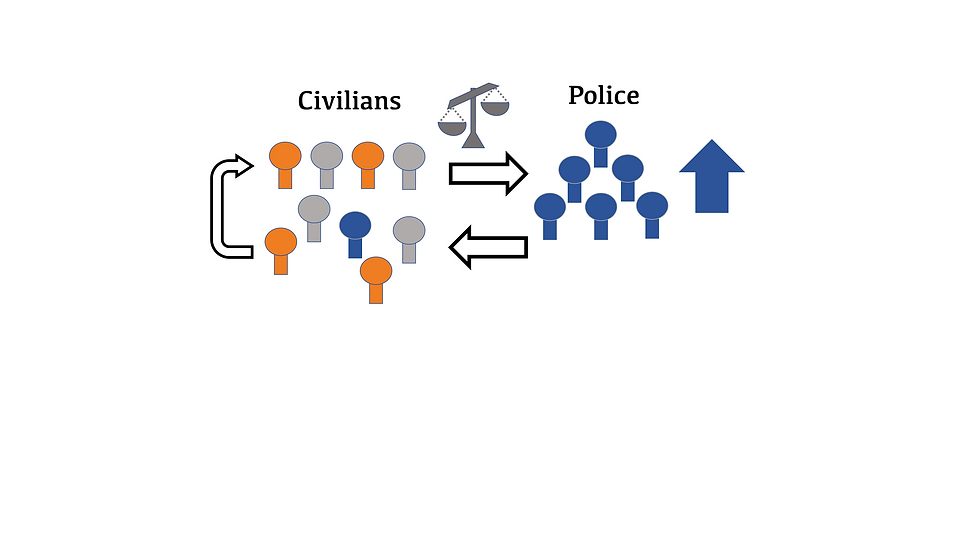
POLICE-COMMUNITY PARTNERSHIP
This research forecasted the outmoded nature of arrest-based policing and strictly adversarial relations between police and community, both built on the criminal-trial model of justice.
Citizen review boards (CRBs) use community leaders as a legitimate oversight mechanism for police complaints. But because they act as criminal courts that do not have binding power, CRBs are largely resisted by police.
Meanwhile, the "community policing" strategy attempts to build close relationships between police and citizen. The problem with this strategy is officers continue to be evaluated for promotion based on arrest numbers.
The police-community partnership proposes that CRBs channel the voice of the community in commending community-friendly officers and that police departments use this input in promoting officers. Through this approach, CRBs would punish the bad cops by promoting the good cops.
To learn more, email nate@outsideinnovation.org.

CRBs are groups of civilians who review police complaints, using a criminal court approach to punish bad officer behavior.

Civilians acting as a criminal court without the expertise or power to judge officers only draw resistance from police.

If departments use CRB input in giving promotions, officers would have community-friendly incentives.

CRBs are groups of civilians who review police complaints, using a criminal court approach to punish bad officer behavior.